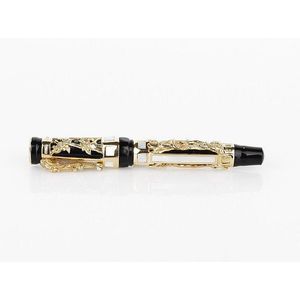Sapphire and Diamond Modernist Bar Brooch
You must be a subscriber, and be logged in to view price and dealer details.
Subscribe Now to view actual auction price for this item
When you subscribe, you have the option of setting the currency in which to display prices to $Au, $US, $NZ or Stg.
- Brilliant Cut - In their naturally occuring state diamonds have little life or sparkle and for many centuries were simply cut in half and worn in amulets. Invented at the end of the 17th century by a Venetian diamond cutter, a "brilliant cut" diamond has 58 facets arranged in a regular geometric relationship, with 33 above the crown and 25 below on the pavilion.
The introduction of the brilliant cut increased the popularity of diamonds in jewellery as it was the first cut to reveal the fire of the diamond, with the light being internally reflected from one facet to another, and was superior to the previously used table cut and rose cut.Variants to the brilliant cut have emerged since the end of the 17th century, but the popularity of the original brilliant cut has continued to the present time, where it is still the most commonly found cut.
. - Modernism / Modernist - Modernist furniture and design emerged in the early to mid-20th century as a response to traditional styles of the 19th century and prior times, and a reflection of the technological and social changes of the time. Characteristics of Modernist furniture and design include simplicity and minimalism and clean lines and a lack of unnecessary ornamentation are key features. That form follows function is a fundamental principle of Modernist design, and furniture and objects are designed with a focus on their practical use.
Modernist furniture often incorporates geometric shapes, such as cubes, rectangles, and circles. This reflects a departure from the more ornate and curvilinear forms of previous design styles. The furniture often prioritizes ergonomic design, ensuring that objects are comfortable and user-friendly. Modernist designers aimed to create designs that could be mass-produced, making good design accessible to a broader population.
Prominent figures associated with Modernist furniture and object design include designers such as Hans Wegner, Verner Panton, Florence Knoll, Harry Bertoia and Ettore Sottsass - Bezel - On a clock or watch, the bezel is the metal frame into which the watch or clock glass is fitted. In clocks, the bezel may include a hinge and a flange, in effect a door to the face of the clock. In jewellery the bezel is a band of metal with a projecting lip that holds the gemstone in its setting.
This item has been included into following indexes:
- brooches, bar brooches
- brooches, diamond - diamond and sapphire 423
- brooches, gold - gold with sapphires 618
Visually similar items

Three Scottish brooches, together with a Miracle brooch and various pins including Australian opal koala pins

Montegrappa Aphrodite solid gold fountain pen solid 18ct yellow gold overlay depicting Aphrodite and Adonis, black ebonite barrel inlaid with mother of pearl panels, 18ct yellow gold nib stamped 'Italy Montegrappa 1912 M 18K 750', limited edition 097 of 18

A gold bar brooch, 15ct yellow gold, Victorian, hallmarked, made as a fine double bar brooch of tubular form, capped in worked finial ends, set with a central garnet in a shield panel of gold, fitted with pin and safety chain. Length 4.5 cm weight 3.8grams

18ct yellow gold & coral brooch the centre is 18ct gold, the bar is silver gilt. weight: approx 2.5 grams (unmarked but tested as 18ct)
